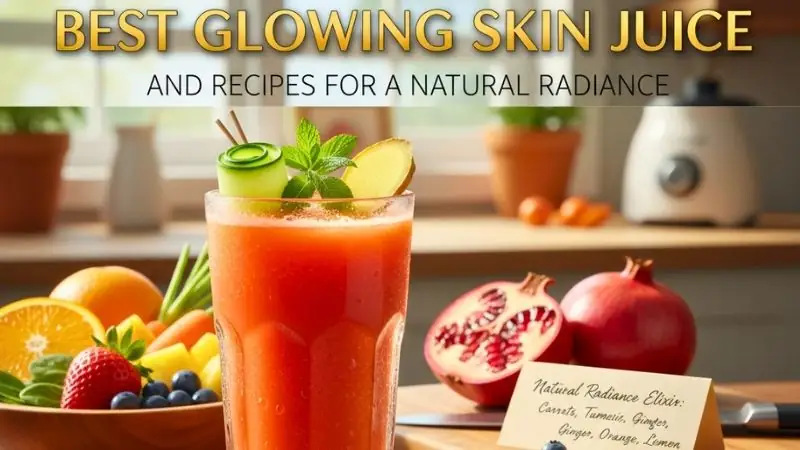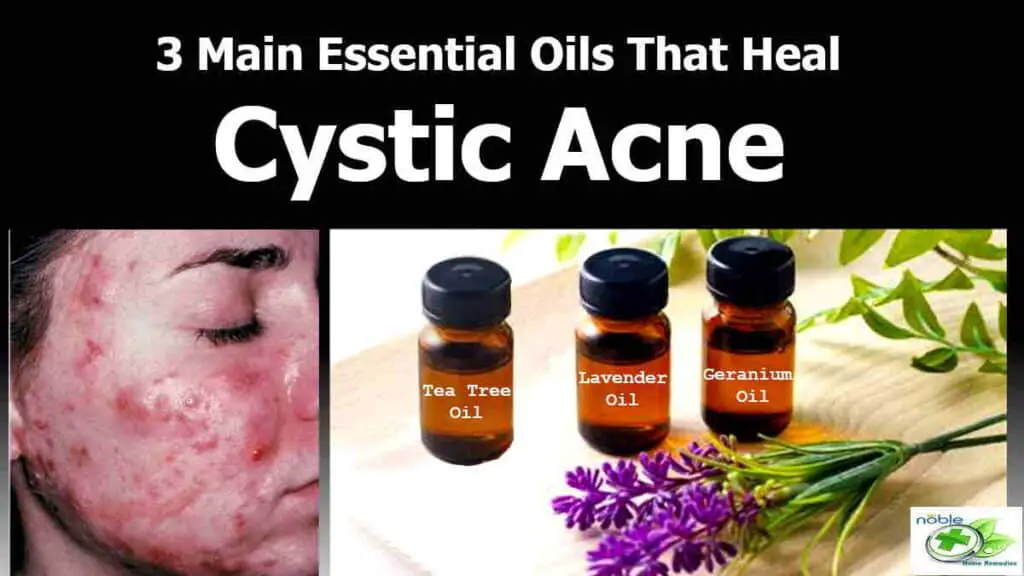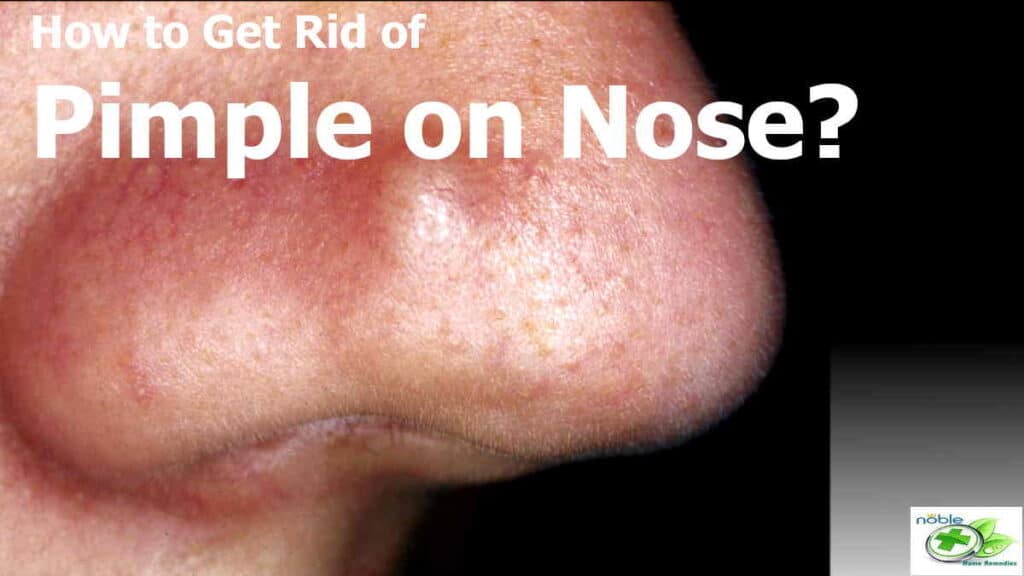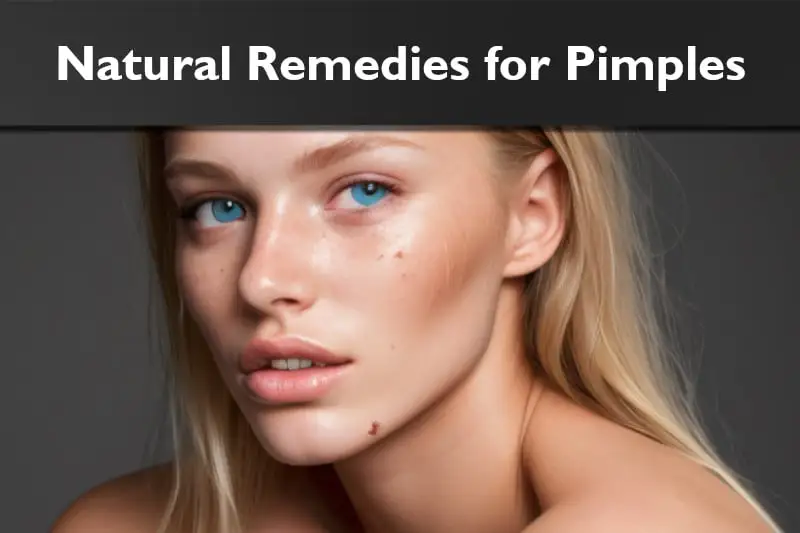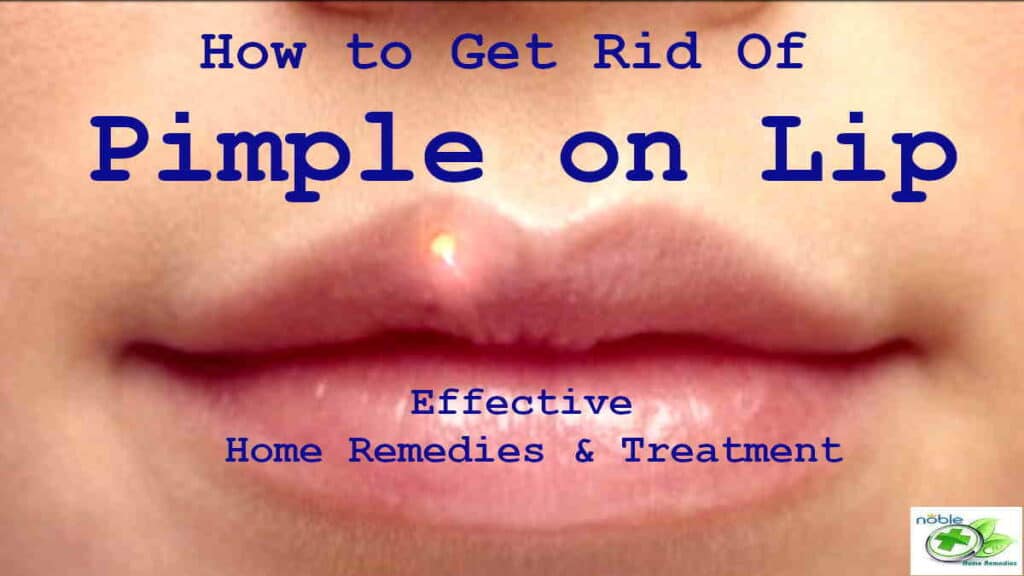How to Stop Popping Pimples – 7 Ways: A Complete Guide
We’ve all been there – faced with a stubborn pimple that seems to taunt us, begging to be squeezed. The temptation is real, and the desire for instant relief can be overwhelming. However, what many of us fail to realize is that the act of popping pimples, though momentarily satisfying, often leads to a host of undesirable consequences. In this comprehensive guide, we will delve deep into pimple-popping and explore why it’s crucial to know how to stop popping pimples.
Pimple-popping isn’t just a passing fad; it’s a common impulse that plagues individuals of all ages and backgrounds. It’s something we do in the privacy of our bathrooms, convinced that it’s the quickest way to bid farewell to that unwelcome blemish. But here’s the catch – the repercussions of this seemingly innocent act can extend far beyond the visible surface of your skin.
This comprehensive guide explores the topic of pimples and the risks associated with popping them. It emphasizes the importance of dealing with this issue properly and offers valuable insights, strategies, and expert advice on how to avoid popping pimples. By the end of this journey, you’ll have the knowledge and tools needed to care for your skin responsibly, preventing future breakouts and protecting your overall health.
The Dangers of Pimple Popping
Pimple popping may offer a momentary sense of satisfaction, but beneath the surface, it conceals a range of potential dangers that can impact your skin’s health and appearance. It’s essential to understand these risks before succumbing to the urge to pop that blemish. Here are the potential risks and negative effects of popping pimples, including:
- Risk of Scarring
- Increased Risk of Infection
- Worsening Acne
- Prolonged Healing Time
- Risk of Hyperpigmentation
Pimple popping can also increase the likelihood of hyperpigmentation, especially in individuals with darker skin tones. The trauma to the skin can trigger excess melanin production, leading to dark spots or patches that take considerable time to fade.
While the temptation to pop pimples can be strong, it’s vital to recognize the potential dangers involved. Scarring, infection, worsening acne, prolonged healing, and hyperpigmentation are all risks that can be avoided by adopting a more responsible approach to pimple care.
Understanding Pimple Types
Before we delve deeper into why it’s essential to resist the urge to pop pimples, let’s start by understanding the various types of pimples that can grace our skin. Not all pimples are created equal, and recognizing the differences between them is crucial when it comes to effective treatment. Here are some of the most common pimple types and how they should be treated:

- Whiteheads (Closed Comedones): Whiteheads are small, raised bumps with a white or yellowish center. They occur when hair follicles become clogged with oil and dead skin cells, trapping bacteria beneath the surface. The key characteristic of whiteheads is that they remain closed, with a thin layer of skin sealing the pore.
- Blackheads (Open Comedones): Blackheads, unlike whiteheads, have an open pore, exposing the trapped debris to air. This exposure oxidizes the contents, giving them their characteristic dark color. Blackheads can appear on the face, chest, back, and other areas with a high density of oil glands.
- Papules: Papules are small, red, and inflamed bumps that often feel tender to the touch. They occur when the walls of hair follicles break down, causing the surrounding tissue to become irritated. Papules don’t contain pus and should not be popped.
- Pustules: Pustules are similar in appearance to whiteheads but have a visible white or yellow center surrounded by red, inflamed skin. They contain pus and are a common sight in acne-prone individuals.
- Cysts: Cysts are large, painful, pus-filled lumps beneath the skin’s surface. They are often deep-seated and can cause significant discomfort. Cysts should never be popped at home.
Knowing the various types of pimples is crucial in proper pimple care. Each type requires a specific treatment, and it’s essential to resist the temptation to pop them.
Why Do People Pop Pimples?
Pimple-popping – it’s a behavior that many of us have engaged in at some point in our lives. But why do people pop pimples? What drives this seemingly irresistible urge? The answer lies in a combination of factors, including biology, psychology, and the immediate satisfaction it provides.
- Immediate Gratification: One of the primary reasons people pop pimples is the instant gratification it offers. When you squeeze a pimple, you often see a white or yellowish substance emerge – this is a mixture of pus, dead skin cells, and bacteria. Witnessing this discharge can be oddly satisfying as it feels like you’re ridding your skin of impurities.
- Psychological Relief: Pimple-popping can provide a psychological sense of relief. It’s not just about the physical act but also the mental perception that you’re taking control of the situation. Popping a pimple can give you a brief feeling of accomplishment, even if it’s short-lived.
- Misguided Beliefs: Many people believe that popping a pimple is the fastest way to make it disappear. They think that emptying the contents of the pimple will heal more quickly. However, this is a misconception. Popping often exacerbates the issue and can lead to further complications.
- Cosmetic Concerns: Concerns about appearance play a significant role in the urge to pop pimples. Pimples can be unsightly, and the desire to eliminate them quickly is understandable. However, there are safer and more effective methods for addressing acne without resorting to popping.
- Peer Pressure and Social Media Influence: In today’s interconnected world, social media often magnifies the pressure to have flawless skin. Seeing celebrities and influencers with seemingly perfect complexions can create a sense of inadequacy, leading some individuals to go to great lengths, including pimple-popping, to achieve similar results.
- Lack of Awareness: Many people may not be aware of the potential dangers associated with pimple-popping. Without proper education on the topic, they may continue this habit, unknowingly putting their skin at risk.
Although it may be tempting to pop pimples, it’s important to recognize that this action can result in negative consequences such as scarring, infection, and aggravated acne. To ensure the best care for your skin, we will see better and more efficient solutions for managing pimples in the following sections of this guide, avoiding the dangers that come with popping them.
How to Stop Popping Pimples
Resisting the urge to pop pimples can be a challenging endeavor, especially when that pesky blemish is staring back at you in the mirror, seemingly begging to be squeezed. However, it’s crucial to remember that popping pimples often leads to more harm than good. To help you break the habit and maintain the health of your skin, here are some effective strategies to resist the temptation:

1. Hands Off:
One of the most basic and efficient methods to prevent the occurrence of popping pimples is to refrain from touching your face. It’s important to be mindful of this because your hands can harbor bacteria and oils that can easily transfer onto your skin, which can make the situation worse. To avoid exacerbating the issue, make a deliberate attempt to steer clear of touching or picking from the affected areas such as the face nose, and lips during the day. By doing so, you can help keep your skin looking healthy and blemish-free.
2. Create a Barrier:
It might be worth considering the application of a hydrocolloid bandage or pimple patch over the blemish you are dealing with. These patches are incredibly thin and adhesive, which allows them to safeguard the pimple from external contaminants while also absorbing any excess fluid, which can help speed up the healing process. Additionally, this physical barrier can act as a visual reminder to avoid popping the pimple.
3. Mindfulness Techniques
In the quest to overcome the urge to pop pimples, mindfulness meditation has proven to be a powerful tool. Whenever the temptation arises, it is essential to take a moment to breathe deeply and mindfully acknowledge the sensation. This simple yet profound practice can help you gain better control over impulsive behavior, thereby helping you achieve your goal of having clear and healthy skin.
4. Distraction Methods
If you’re struggling to deal with a pimple, it can be helpful to distract yourself by engaging in activities that keep your mind and hands occupied. Consider drawing, coloring, knitting, or playing a musical instrument to redirect your focus away from the pimple. By diverting your attention, you can effectively reduce the impact of the pimple on your mental state. Remember that this is a temporary solution, but it can be highly effective at the moment.
5. Maintain a Consistent Skincare Routine
Maintaining a consistent and effective skincare routine can work wonders in preventing the emergence of pimples, thereby reducing the urge to pop them. To achieve this, it is crucial to cleanse, exfoliate, and moisturize regularly using non-comedogenic products. These products should be carefully chosen to ensure that they do not clog the pores and lead to breakouts. By following these steps, you can keep your skin in optimal health and minimize the occurrence of unsightly and uncomfortable pimples.
6. Seek Support
If you struggle with the incessant urge to pop pimples, it may be helpful to seek the support of a trusted friend or family member. Having someone to provide encouragement and gently remind you to resist the impulse can be immensely beneficial in curbing this habit. By enlisting the help of a loved one, you can work together to overcome this challenge and maintain healthier skin.
7. Professional Help
If you are experiencing persistent acne and find yourself constantly tempted to pop your pimples, it is highly recommended that you seek the guidance of a trusted dermatologist. These medical professionals have the expertise to provide you with personalized skincare recommendations that cater to your specific needs and skin type. In addition, they can prescribe effective treatments and perform safe procedures that can help you manage your acne and achieve clear, healthy-looking skin. By entrusting your skincare needs to a dermatologist, you can rest assured that you are receiving the best possible care and are on your way to achieving your desired results.
Remember that breaking the habit of pimple-popping takes time and persistence. Be patient with yourself and stay committed to adopting healthier skincare practices. By following these strategies and practicing mindfulness, you can reduce the urge to pop pimples and pave the way for clearer, healthier skin.
Safe Pimple Treatment Alternatives
In our quest to stop popping pimples, it’s essential to have effective and safe alternatives for dealing with these unwelcome blemishes. Fortunately, there are numerous methods you can employ to address pimples without the risks associated with popping. Let’s explore some safe pimple treatment options and acne care tips to help you maintain healthy, clear skin.
Over-the-counter (OTC) Products
One of the key advantages of OTC products is convenience. They can be purchased at local drugstores or online without the need for a prescription. Furthermore, these products often come in various forms, including cleansers, spot treatments, creams, and gels, making it easier for users to find a suitable product for their specific skin type and acne severity.
Salicylic Acid: OTC products containing salicylic acid can be highly effective in treating acne. Salicylic acid helps to exfoliate the skin, unclog pores, and reduce inflammation. Look for cleansers, spot treatments, or pads with salicylic acid as an active ingredient.
Benzoyl Peroxide: Benzoyl peroxide is another OTC option that can help combat pimples. It works by killing acne-causing bacteria and reducing inflammation. Start with a lower concentration and gradually increase it if needed.
Topical Retinoids: Some OTC retinoid products can promote skin cell turnover, preventing clogged pores and reducing the formation of new pimples. However, these products may cause skin dryness and irritation, so use them sparingly.
Natural Remedies:
It’s worth exploring some effective home remedies and DIY solutions that can help you manage and prevent pimples naturally. These remedies not only target pimples but also promote overall skin health. Let’s look into some popular home remedies for pimples that can be your go-to option in times of need.
Tea Tree Oil: Tea tree oil is a natural antimicrobial agent that can help combat acne-causing bacteria. Dilute it with a carrier oil and apply it to pimples as a spot treatment.
Honey and Cinnamon Mask: A honey and cinnamon mask can have antibacterial and anti-inflammatory properties. Mix a tablespoon of honey with a pinch of cinnamon, apply it to pimples, and leave it on for 15-20 minutes before rinsing.
Aloe Vera Gel: Aloe vera has soothing and anti-inflammatory properties. Applying pure aloe vera gel to pimples can help reduce redness and inflammation.
Proper Skincare Routine
Adopting a consistent skincare routine is crucial for preventing pimples. Ensure your routine includes cleansing to remove dirt and oil, exfoliating to unclog pores, and moisturizing to maintain skin balance. Use non-comedogenic products to reduce the risk of pore blockage.
Healthy Lifestyle Choices
Making healthy lifestyle choices can also play a significant role in preventing pimples. This includes maintaining a well-balanced diet, staying hydrated, managing stress, and getting enough sleep. These factors can influence your skin’s health and overall well-being.
Professional Guidance
If your acne is severe or persistent, seeking professional help from a dermatologist is advisable. They can provide personalized treatment options, including prescription medications or in-office procedures.
In conclusion, stopping the habit of pimple-popping is a crucial step toward maintaining clear and healthy skin. By adopting safe pimple treatment alternatives and following acne care tips, you can effectively manage and prevent pimples without resorting to harmful practices. Experiment with different methods to find the approach that works best for your skin type and needs, and remember that patience and consistency are key to achieving long-lasting results.
Proper Pimple Care
Caring for pimples the right way can make a significant difference in their appearance and your skin’s overall health. Instead of resorting to pimple-popping, which can lead to more harm than good, follow these essential steps to properly care for pimples and minimize their impact on your skin.
- Gentle Cleansing: The foundation of proper pimple care is gentle cleansing. Use a mild, fragrance-free cleanser to wash your face twice daily. Avoid harsh scrubs or abrasive cleansing brushes, as they can irritate your skin and worsen acne. Gently pat your face dry with a clean towel rather than rubbing, which can cause friction and inflammation.
- Avoid Overwashing: While cleansing is crucial, overwashing your face can strip it of essential oils, leading to dryness and potentially exacerbating acne. Stick to the recommended twice-daily cleansing routine, and avoid washing your face more frequently unless advised otherwise by a dermatologist.
- Non-Comedogenic Products: When selecting skincare and makeup products, opt for those labeled as “non-comedogenic.” These products are less likely to clog your pores and contribute to the development of pimples. Check product labels to ensure they won’t cause further skin issues.
- Moisturize Appropriately: Moisturizing is essential for maintaining skin balance, even if you have acne-prone skin. Choose a lightweight, non-comedogenic moisturizer and apply it after cleansing. Moisturized skin is less likely to produce excess oil, which can help prevent new pimples from forming.
- Sun Protection: Protecting your skin from the sun is crucial when caring for pimples. Sun exposure can lead to inflammation and potential scarring. Apply a broad-spectrum sunscreen with an SPF of at least 30 daily, even on cloudy days, especially if you’re using acne-fighting products that may make your skin more sensitive to UV radiation.
- Hands Off: Avoid touching your face throughout the day, as this can transfer dirt and bacteria to your skin, exacerbating acne. Also, resist the urge to pick or squeeze pimples, as it can lead to scarring and infection.
- Patience is Key: Remember that pimples take time to heal naturally. Be patient and resist the urge to rush the process. With proper care, most pimples will resolve on their own within a few days to a week.
- Consult a Dermatologist: If you’re struggling to manage your acne or have concerns about specific pimples, consult a dermatologist. They can provide tailored advice and, if necessary, prescribe treatments that can help you achieve clearer skin safely.
Seeking Professional Help
While we’ve covered various strategies and safe alternatives to pimple-popping in this guide, there may come a time when it’s advisable to seek professional help. Understanding when to consult a dermatologist can be a crucial step in managing pimples effectively, especially in cases of persistent or severe acne.

When to Consult a Dermatologist:
- Persistent Acne: If you’ve been dealing with persistent acne that doesn’t seem to respond to over-the-counter treatments or natural remedies, it’s time to see a dermatologist. They can assess the severity of your condition and provide tailored advice and treatment options.
- Severe Acne: Severe acne can be characterized by deep, painful cysts, extensive redness, and a high risk of scarring. Dermatologists are equipped to manage severe cases and can prescribe medications or recommend in-office procedures to bring your acne under control.
- Risk of Scarring: If you’re at risk of scarring due to your acne or if you’ve noticed scarring starting to develop, don’t hesitate to consult a dermatologist. Early intervention can prevent further scarring and improve the appearance of existing scars.
- Hormonal Acne: If your acne appears to be hormonally influenced, especially in adult women, a dermatologist can evaluate your hormonal profile and recommend treatments like oral contraceptives or anti-androgen medications.
Medical Treatments for Severe Acne:
- Prescription Topicals: Dermatologists can prescribe stronger topical treatments than those available over the counter. These may include retinoids, antibiotics, or combination therapies tailored to your skin type and acne severity.
- Oral Medications: For more severe cases, oral antibiotics or oral contraceptives (for females) may be recommended. These medications can help reduce inflammation, control oil production, and prevent bacterial overgrowth.
- Isotretinoin (Accutane): Isotretinoin is a potent medication reserved for severe, treatment-resistant acne. It is highly effective but comes with potential side effects and requires close monitoring by a dermatologist.
- In-Office Procedures: Dermatologists offer various in-office procedures to treat acne and acne-related concerns. These include chemical peels, laser therapy, microdermabrasion, and corticosteroid injections for cystic acne.
- Extraction: In cases where pimples are ripe for extraction, dermatologists can perform safe, sterile extractions to minimize damage and prevent scarring.
Remember that consulting a dermatologist isn’t just about addressing current acne; it’s also about preventing future breakouts and preserving the health and appearance of your skin. Dermatologists have the expertise and tools to create a personalized treatment plan that suits your unique needs and can provide guidance on how to manage your acne safely.
Takeaway: How to Stop Popping Pimples
In our quest for clear and healthy skin, it’s vital to recognize that the act of popping pimples is more harmful than helpful. This complete guide has explored various aspects of pimple management, providing you with valuable insights and strategies to stop popping pimples for good. Let’s recap the key takeaways and emphasize why avoiding pimple popping is crucial for achieving and maintaining healthier skin:
Key Takeaways:
- Understanding Pimple Types: Recognize that not all pimples are the same. Understanding their differences helps you choose the right treatment approach.
- The Dangers of Pimple Popping: Popping pimples can lead to scarring, infection, worsening acne, and prolonged healing time.
- Why Do People Pop Pimples?: The urge to pop pimples often stems from the immediate satisfaction it provides, but it’s essential to resist this temptation.
- How to Stop Popping Pimples: We’ve provided strategies such as mindfulness techniques, distraction methods, and creating barriers to resist the urge to pop pimples.
- Safe Pimple Treatment Alternatives: Explore over-the-counter products and natural remedies to care for pimples safely. A consistent skincare routine and a healthy lifestyle play a significant role.
- Proper Pimple Care: Gentle cleansing, moisturizing, and sun protection are the foundation of proper pimple care. Avoid overwashing and harsh products.
- Seeking Professional Help: Consult a dermatologist when dealing with persistent or severe acne, or scarring, or when over-the-counter solutions prove ineffective. Dermatologists offer various medical treatments and procedures to address acne safely.
- Home Remedies and DIY Solutions: Home remedies like tea tree oil, honey and cinnamon masks, aloe vera gel, and DIY face masks can be effective in managing and preventing pimples naturally.
The Importance of Avoiding Pimple Popping:
It cannot be stressed enough that avoiding pimple popping is essential for achieving and maintaining healthier skin. Pimple popping may offer fleeting satisfaction, but it often leads to lasting consequences such as scarring, infection, and aggravated acne.
By following the guidance provided in this comprehensive guide, you can break the habit of pimple-popping and adopt safer, more effective methods for managing and preventing pimples. Remember, patience is key, and consistent skincare practices will yield long-lasting results. Embrace healthier skin management practices, and your complexion will thank you with clarity and radiance.
Source:
Noble Home Remedies adheres to rigorous sourcing standards, drawing information from peer-reviewed studies, reputable academic research institutions, and esteemed medical journals and associations. We prioritize using high-quality, trustworthy sources to maintain the accuracy and integrity of our content. You can learn more about how we ensure our content is accurate and current by reading our editorial policy.
- Stop Popping Your Zits! by Manhattan Dermatology
- Why we’re obsessed with popping pimples by Tweak India
- 8 Ways to Resist the Urge to Pop Pimples, by a celebrity skin expert by Vogue India
- How to treat different types of acne by American Acadamy of Dermatology Association
Trust in your purchase:
Every product featured on our site has been carefully researched and selected based on quality, customer ratings, and positive reviews to ensure you receive excellent value for your money.
Please note:
This post contains affiliate links. If you make a purchase through these links, we may earn a small commission at no additional cost to you. This helps support our site and allows us to continue bringing you valuable content. Thank you!
Thank you for your precious time spent with NobleHomeRemedies.
You may also like:
Glowing Skin Juice and Recipes
10+ Best Glowing Skin Juice and Recipes for a Natural Radiance Do you ever look…
Jojoba oil for Fordyce spots
Jojoba Oil for Fordyce Spots: Experience 6 Steps Solution Uninvited and often misunderstood, Fordyce spots…
Essential Oils for Cystic Acne
Essential Oils for Cystic Acne: Top 3 Oils for Your Pimples One of the most…
How to Get Rid of Pimples on Nose
How to Get Rid of Pimples on Nose: 6 Best Home Remedies Pimples are the…
Natural Remedies for Pimples
5 Natural Remedies for Pimples: For Your Blemish Free Skin In the pursuit of radiant,…
How to Get Rid of a Pimple on Lip?
How to Get Rid of a Pimple on Lip?: Best 9 Remedies Pimples can appear…

